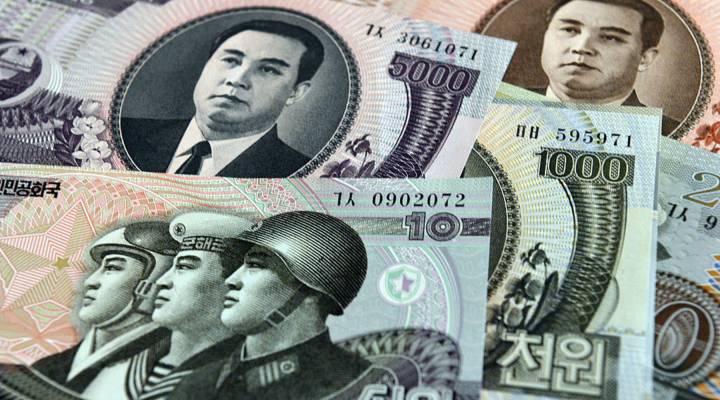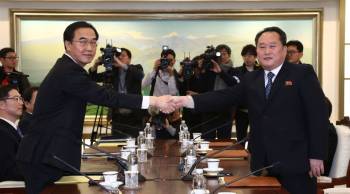
4 things you didn’t know about North Korea’s economy

President Trump has said the U.S. will impose new sanctions on North Korea and praised China for taking measures to financial transactions with the nation.
That came after he spoke at the United Nations where, in a speech, he said he would “totally destroy” North Korea if its nuclear program threatened the U.S. or its allies.
So, what effect can sanctions have on the North Korean economy? And what does that economy look like? We break it down for you.
1. Despite sanctions, North Korea’s economy is actually growing.
North Korea’s economy grew by 3.9 percent in 2016. It has a lot to do with the country’s changing view of the world economy. North Korean leader Kim Jong Un is embracing markets and is establishing more channels of interactions with the outside world — even with efforts by the international community to impose sanctions. And that means goods are being bought and sold within the country.
“There are locations that look like kind of early versions of North Korea’s Walmart,” said Scott Snyder, director of the program on U.S.-Korea policy at the Council on Foreign Relations. “You can go in and go to different stalls and buy and sell whatever you need.”
Those traders, however, are also subject to threats, intimidation and bribes. The market in North Korea is rife with corruption.
“It’s really a frontier-style predatory market economy rather than anything where there’s a level playing field that regulates capitalist exchange,” Snyder said.
2. Sanctions have, until now, been focused on goods that could be used in North Korea’s nuclear program. That’s changing.
In the past year, the U.N. has begun to impose sectoral sanctions on North Korean exports. It’s designed to reduce North Korea’s access to foreign currency.
“So far, I don’t know that the sanctions have had much of an impact on the average North Korean,” Snyder said. “This could change that.”
We now see bans on fishery exports and textile exports. Those are major sources of foreign exchange.
3. While most of North Korea’s trade happens with China, new sanctions limit that. So, they’re getting craftier.
There’s been a cap on North Korean exports of coal to China, a major source of income for the North Korean state. Over the past eight months, North Korea has moved to selling more coal to Vietnam and Malaysia.
“What we’re really doing is playing a game of whack-a-mole with North Korea,” Snyder said. “For every sanction that is introduced, the North Koreans try to find some sort of sanctions evasion measure as a way of trying to keep themselves plugged into the global economy.”
Most of the goods that enter North Korea come through trade with China. And that relationship keeps North Korea afloat.
“They’re essentially the umbilical cord to the national economy for North Korea,” Snyder said. “North Koreans use Chinese front companies and Chinese partners as the main instruments to get the goods that they need in order to build their nuclear program or get food and fuel for their citizenry.”
4. Sanctions and pressuring North Korea’s economy can only get so much done.
That’s because North Korea isn’t seeking economic dominance.
“The rationale for the pursuit for a nuclear and missile program is really associated with regime survival,” Snyder said. “The opening offer that the regime has offered is they want the United States to abandon their hostile policy toward North Korea.”
There’s a lot happening in the world. Through it all, Marketplace is here for you.
You rely on Marketplace to break down the world’s events and tell you how it affects you in a fact-based, approachable way. We rely on your financial support to keep making that possible.
Your donation today powers the independent journalism that you rely on. For just $5/month, you can help sustain Marketplace so we can keep reporting on the things that matter to you.


















